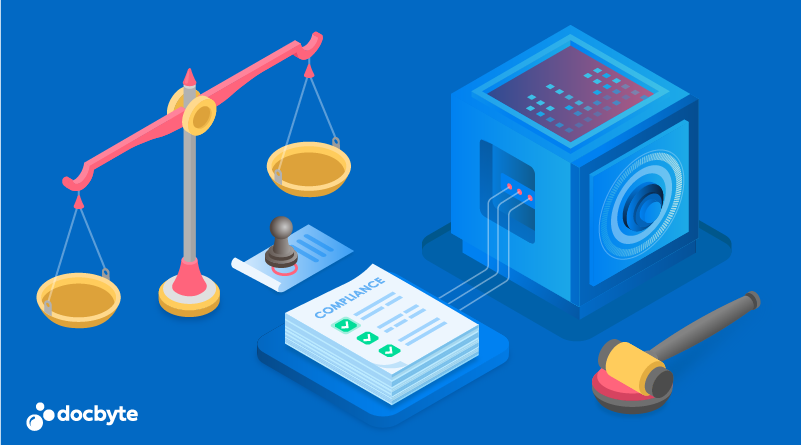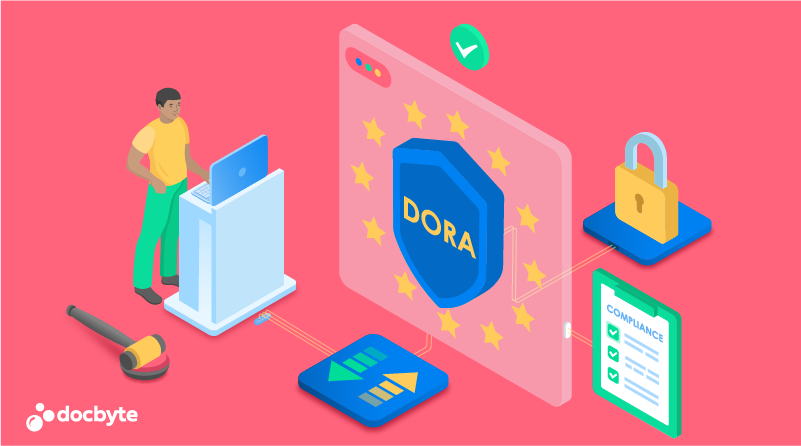Legal proceedings and compliance are often interwoven with the critical task of archiving. Legal archiving is not just about stacking files or securing digital data on a server. It’s about preserving the authenticity and integrity of information that might one day be pivotal in a court of law.
This post provides an essential understanding of legal archiving. It introduces you to Qualified Electronic Archiving (QeA), a necessity under the legislative framework in places like Belgium and increasingly across Europe.
Legal Archiving: Ensuring Information Authenticity and Retention Management
What is Legal Archiving?
Legal archiving refers to safeguarding information so that its authenticity can be established and its retention period can be effectively managed. It requires a systematic approach to document management so that the authenticity can be proven and retained afterwards.
Legal archiving does not have a universal certification that stamps a solution as fail-proof, contrary to qualified electronic archiving. In the wake of litigation, only an expert’s scrutinous analysis and conclusions can affirm if the information has been preserved in line with legal standards.
The Role of Document Management Solutions
Document management and records management solutions are the contemporary custodians of legal documents. They ensure you can retrieve documents in their original form, evidencing their originality and conformity to legal requirements.
Whether you deal in contracts, agreements, case files, or compliance documentation, a robust solution is integral to your legal toolkit.
Despite the robust nature of document management and records management solutions, it’s crucial to recognise their limitations in legal safeguarding. While indispensable for organising and preserving documents, these systems only fulfil some criteria for a qualified electronic archive (QeA).
Specifically, they lack the certification to store electronic signatures and stamps legally. This is a significant shortfall because e-signatures and digital stamps are becoming increasingly central in legal and business transactions.
The absence of this qualification means that, in a legal scenario, documents preserved in these systems might not hold the requisite legal standing, especially when the authenticity of electronic endorsements is called into question.
Therefore, while document management solutions are critical for day-to-day operations, they must be more than just relied upon for the comprehensive legal archiving of documents, particularly those bearing e-signatures and digital stamps.
The Era of Qualified Electronic Archiving (QeA)
In regions like Belgium, the Digital Act made it mandatory for specific types of information to be archived using a QeA solution. More compelling is the anticipated roll-out of this requirement for other kinds of information across Europe, fueled by the eIDAS (Electronic Identification, Authentication and Trust Services) regulation. Under this regulation, electronic services, including archiving, are required to meet specific standards of verification and security.
Unlike standard document management solutions, a QeA solution carries a certification badge. Only certified solutions can comply with the stringent guidelines for electronic archiving. Non-certified solutions offer some assurance but can’t guarantee adherence to regulatory expectations.
One of the landmark advantages of using a qualified solution is the reversal of the burden of proof. This means that if a dispute arises concerning the authenticity of a document, it’s the court’s responsibility to prove its legitimacy. This reversal is a fundamental shift in legal dynamics, offering a basis for legal certainty when QeA systems are employed.
Who Needs to Be QeA-Compliant?
Awareness of the niche requirements of QeA is imperative for legal and compliance officers across sectors. Whether you operate in finance, healthcare, real estate, technology, or within governmental agencies, ensuring that your electronic archiving system meets these criteria is not only about being compliant; it’s about being prepared for any legal scrutiny that may come your way.
Archive Requirements
Compliance is non-negotiable; numerous international and regional standards dictate how legal archiving should be managed.
Let’s explore some of the most influential directives in the field:
ISO (International Organization for Standardization) Regulations
ISO standards serve as a bedrock for establishing a reliable framework for archiving practices. Crucial to the discussion are ISO 9001 and the ISO 30300 series.
Here’s a brief overview of their implications for legal archiving:
ISO 9001: Quality Management Systems
- Application: ISO 9001 outlines principles for quality management that ensure legal archiving processes are consistent, efficient, and traceable.
- Compliance: Adhering to ISO 9001 helps organisations demonstrate their ability to provide services that meet customer and regulatory requirements.
ISO 30300 Series: Records Management System
- Purpose: It specifies requirements for a records management system, guiding the creation, capture, and preservation of records.
- Implementation: Organisations must establish policies and objectives for records management, catering to regulatory archiving demands.
GDPR (General Data Protection Regulation) Regulations
- Personal Data Management: GDPR requires an organisation’s archiving processes to align with rigid requisites to protect individual rights.
- Data Retention: Archives under GDPR must be kept only as long as necessary to protect the rights of the individuals to whom the data pertains.
eIDAS (Electronic Identification, Authentication and Trust Services) Regulations
eIDAS sets the stage for standardised regulation across electronic identifications and trust services, especially for digitally archived documents.
- Framework: eIDAS defines conditions for secure and seamless electronic interactions between businesses, citizens, and public authorities.
- Legal Acceptability: Ensures the legal recognition of electronic signatures, which is integral to the validity of archived electronic documents.
ETSI Standards
ETSI dictates the technical standards to which compliance is essential for archiving electronic documents, particularly concerning eIDAS.
- Technical Specifications: Covers the stipulations for digital signatures and ensures their validity over time, which is crucial for document authentication.
- Trustworthiness: Demonstrates the integrity of electronic signatures, proving that archived electronic documents are trustworthy and tamper-proof.
e-Ark Standards
Providing technical specifications and tools is essential for developing an integrated archiving infrastructure, facilitating improved availability, access, and use. Furthermore, a rigorous analysis of aggregated sets of archival data is crucial for deriving valuable insights and ensuring the effectiveness of archival processes.
- Digital Archive Integration: Supports digital preservation and the management of electronic records to ensure long-term reliability.
- Compliance: Achieves integration with eIDAS standards, securing the authentication of electronic records and signatures through stringent protocols.
A Self-Aware Approach to Legal Archiving
While legal archiving companies play a crucial role, a significant portion of the responsibility falls on the individuals and teams that oversee this process within their organisation. Therefore, a business must regularly audit its legal archiving practices.
These exercises ensure that standards and regulations are continually met and serve as the base for your archiving systems and strategies. The team needs to equip itself with the latest knowledge of legal archiving and the laws surrounding it.
Continuous learning is critical to adapting and staying compliant in the ever-evolving legal landscape and taking proactive actions to guarantee that your legal archiving processes include all the best practices and compliance.
To evaluate your archiving activities, consider the following points;
- Regularly reviewing and updating document retention policies to align with changing regulations and business needs.
- Implementing strict access controls and user permissions to restrict unauthorised access to sensitive documents.
- Regularly backing up archived data and testing the retrieval process to ensure data integrity and accessibility in case of disaster or system failures.
- Conducting periodic audits and monitoring of archiving processes to identify any discrepancies or potential vulnerabilities.
- Staying informed about emerging technologies and industry developments to improve archiving strategies continuously.
- Maintaining clear and comprehensive documentation of all archiving processes and procedures for legal compliance.
Conclusion
By embracing robust archiving solutions, companies can comply with legal requirements, enhance operational efficiencies, and protect against data loss or breaches. Implementing comprehensive archiving strategies, including state-of-the-art security features and integration capabilities, ensures that critical business information is preserved, verifiable, and accessible long-term.
As technology advances and regulations evolve, organisations must remain vigilant and adaptable in their archiving approaches. Continue to pursue excellence in legal archiving, knowing that your choices today could define your defence tomorrow.






